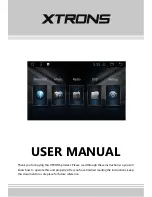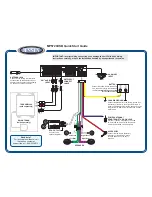
C
omrex
C
orporation
82
S
ECtIon
12
m
ultI
-S
trEAmIng
ACCESS supports the ability to run one encoder per box. But this single
encoder stream may be sent to up to nine destinations simultaneously. We
call this capability multi-streaming, since the encoder creates a separate
but identical outgoing stream to each decoder.
Note: Your Internet connec-
tion must be able to support these streams. For example, if your encoder
runs at 35 kbps network utilization, sending to two locations will require
70 kbps upload speed from your network.
Multi-streaming should not be confused with IP Multicast, which is de-
scribed in the next section.
Each ACCESS can also run only one decoder. So it’s important that in a
multi-stream environment, a maximum of one stream is sent in the reverse
direction. This means that users interested in hearing a multi-stream must
turn off their encoders.
This can be a bit confusing because multi-streams can be initiated from
either end of the link.
Figure 44 shows an ACCESS multi-stream arrangement. ACCESS A is the
multi-streamer, with ACCESS B, C and D listening to the same audio. In
order to set up a multi-stream scenario, you will need to know how to turn
ACCESS encoders
Off
. This must be done by building a profile with either
the
Local
or
Remote Transmitter
mode set to
Off
, as shown in Figure 48.
We’ll give two examples of multi-steaming scenarios. The first is an envi-
ronment where the ACCESS that is serving the multi-stream initiates the
calls, and in the second the serving ACCESS accepts all its incoming con-
nections.
Internet
User B - Sending and Receiving BRIC-HQ1 Mono
User C - Receiving BRIC-HQ1 Mono
User D - Receiving BRIC-HQ1 Mono
User A - BRIC-HQ1 Mono
Figure 48 - Multi-Streaming Arrangement
Warning: Advanced Topic















































